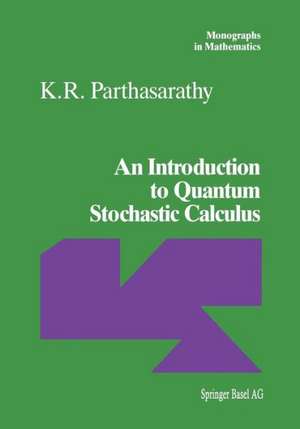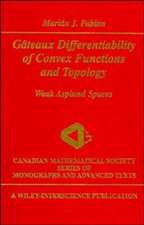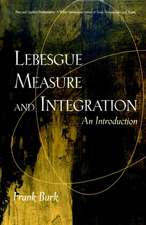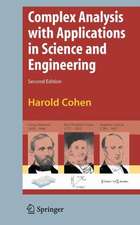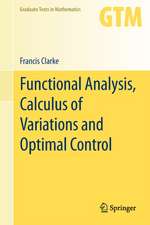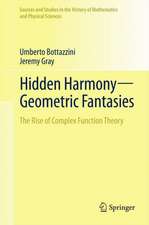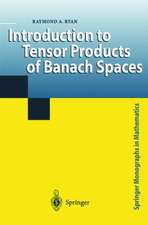An Introduction to Quantum Stochastic Calculus: Monographs in Mathematics, cartea 85
Autor K.R. Parthasarathyen Limba Engleză Paperback – 28 sep 2012
"This is an excellent volume which will be a valuable companion both for those who are already active in the field and those who are new to it. Furthermore there are a large number of stimulating exercises scattered through the text which will be invaluable to students." – Mathematical Reviews
An Introduction to Quantum Stochastic Calculus aims to deepen our understanding of the dynamics of systems subject to the laws of chance both from the classical and the quantum points of view and stimulate further research in their unification. This is probably the first systematic attempt to weave classical probability theory into the quantum framework and provides a wealth of interesting features:
The origin of Ito's correction formulae for Brownian motion and the Poisson process can be traced to communication relations or, equivalently, the uncertainty principle.
Quantum stochastic interpretation enables the possibility of seeing new relationships between fermion and boson fields.
Quantum dynamical semigroups as well as classical Markov semigroups are realized through unitary operator evolutions.
The text is almost self-contained and requires only an elementary knowledge of operator theory and probability theory at the graduate level.
| Toate formatele și edițiile | Preț | Express |
|---|---|---|
| Paperback (2) | 640.71 lei 43-57 zile | |
| Springer – 14 dec 2012 | 640.71 lei 43-57 zile | |
| Birkhäuser Basel – 28 sep 2012 | 644.63 lei 43-57 zile |
Din seria Monographs in Mathematics
- 18%
 Preț: 1120.81 lei
Preț: 1120.81 lei - 18%
 Preț: 1136.74 lei
Preț: 1136.74 lei - 15%
 Preț: 647.27 lei
Preț: 647.27 lei - 18%
 Preț: 1129.96 lei
Preț: 1129.96 lei - 18%
 Preț: 1117.99 lei
Preț: 1117.99 lei - 15%
 Preț: 641.71 lei
Preț: 641.71 lei -
 Preț: 453.76 lei
Preț: 453.76 lei - 18%
 Preț: 892.74 lei
Preț: 892.74 lei -
 Preț: 386.00 lei
Preț: 386.00 lei - 18%
 Preț: 1111.97 lei
Preț: 1111.97 lei - 24%
 Preț: 738.43 lei
Preț: 738.43 lei -
 Preț: 393.90 lei
Preț: 393.90 lei - 15%
 Preț: 651.02 lei
Preț: 651.02 lei -
 Preț: 398.15 lei
Preț: 398.15 lei -
 Preț: 397.38 lei
Preț: 397.38 lei - 15%
 Preț: 648.05 lei
Preț: 648.05 lei - 15%
 Preț: 645.60 lei
Preț: 645.60 lei -
 Preț: 419.91 lei
Preț: 419.91 lei - 18%
 Preț: 964.10 lei
Preț: 964.10 lei - 15%
 Preț: 648.74 lei
Preț: 648.74 lei - 18%
 Preț: 894.46 lei
Preț: 894.46 lei - 15%
 Preț: 665.26 lei
Preț: 665.26 lei - 15%
 Preț: 644.49 lei
Preț: 644.49 lei - 18%
 Preț: 1006.55 lei
Preț: 1006.55 lei
Preț: 644.63 lei
Preț vechi: 758.38 lei
-15% Nou
Puncte Express: 967
Preț estimativ în valută:
123.35€ • 129.11$ • 102.67£
123.35€ • 129.11$ • 102.67£
Carte tipărită la comandă
Livrare economică 31 martie-14 aprilie
Preluare comenzi: 021 569.72.76
Specificații
ISBN-13: 9783034897112
ISBN-10: 3034897111
Pagini: 308
Ilustrații: XI, 292 p.
Dimensiuni: 178 x 254 x 16 mm
Greutate: 0.54 kg
Ediția:Softcover reprint of the original 1st ed. 1992
Editura: Birkhäuser Basel
Colecția Birkhäuser
Seria Monographs in Mathematics
Locul publicării:Basel, Switzerland
ISBN-10: 3034897111
Pagini: 308
Ilustrații: XI, 292 p.
Dimensiuni: 178 x 254 x 16 mm
Greutate: 0.54 kg
Ediția:Softcover reprint of the original 1st ed. 1992
Editura: Birkhäuser Basel
Colecția Birkhäuser
Seria Monographs in Mathematics
Locul publicării:Basel, Switzerland
Public țintă
ResearchCuprins
I Events, Observables and States.- 1 From classical to quantum probability.- 2 Notational preliminaries.- 3 Finite dimensional quantum probability spaces.- 4 Observables in a simple quantum probability space.- 5 Variance and covariance.- 6 Dynamics in finite dimensional quantum probability spaces.- 7 Observables with infinite number of values and the Hahn-Hellinger Theorem.- 8 Probability distributions on? (?)and Gleason’s Theorem.- 9 Trace class operators and Schatten’s Theorem.- 10 Spectral integration and Stone’s Theorem on the unitary representations of ?pk.- 11 Basic notions of the theory of unbounded operators.- 12 Spectral integration of unbounded functions and von Neumann‘s Spectral Theorem.- 13 Stone generators, characteristic functions and moments.- 14 Wigner’s Theorem on the automorphisms of ?(?).- II Observables and States in Tensor Products of Hubert Spaces.- 15 Positive definite kernels and tensor products of Hilbert Spaces.- 16 Operators in tensor products of Hilbert Spaces.- 17 Symmetric and antisymmetric tensor products.- 18 Examples of discrete time quantum stochastic flows.- 19 The Fock Spaces.- 20 The Weyl Representation.- 21 Weyl Representation and infinitely divisible distributions.- 22 The symplectic group of ? and Shale’s Theorem.- 23 Creation, conservation and annihilation operators in ?a(?).- III Stochastic Integration and Quantum Ito’s Formula.- 24 Adapted processes.- 25 Stochastic integration with respect to creation, conservation and annihilation processes.- 26 A class of quantum stochastic differential equations.- 27 Stochastic differential equations with infinite degrees of freedom.- 28 Evans-Hudson Flows.- 29 A digression on completely positive linear maps and Stinespring’s Theorem.- 30 Generators of quantumdynamical semigroups and the Gorini, Kossakowski, Sudarshan, Lindblad Theorem.- References.- Author Index.
Recenzii
"Elegantly written, with obvious appreciation for fine points of higher mathematics...most notable is [the] author's effort to weave classical probability theory into [a] quantum framework." --The American Mathematical Monthly
"This is an excellent volume which will be a valuable companion both for those who are already active in the field and those who are new to it. Furthermore there are a large number of stimulating exercises scattered through the text which will be invaluable to students." --Mathematical Reviews
"This is an excellent volume which will be a valuable companion both for those who are already active in the field and those who are new to it. Furthermore there are a large number of stimulating exercises scattered through the text which will be invaluable to students." --Mathematical Reviews
Notă biografică
Kalyanapuram Rangachari Parthasarathy was professor of statistics at the University of Manchester (1968-70), the University of Bombay (1970-76) and the Indian Statistical Institute Delhi Centre (1977-96) where he was also CV Raman Professor of INSA (1996-2001). Now he is Emeritus Scientist at the Indian Statistical Institute in New Delhi.
Textul de pe ultima copertă
An Introduction to Quantum Stochastic Calculus aims to deepen our understanding of the dynamics of systems subject to the laws of chance both from the classical and the quantum points of view and stimulate further research in their unification. This is probably the first systematic attempt to weave classical probability theory into the quantum framework and provides a wealth of interesting features:
The origin of Ito’s correction formulae for Brownian motion and the Poisson process can be traced to commutation relations or, equivalently, the uncertainty principle.
Quantum stochastic integration enables the possibility of seeing new relationships between fermion and boson fields.
Many quantum dynamical semigroups as well as classical Markov semigroups are realised through unitary operator evolutions.
The text is almost self-contained and requires only an elementary knowledge of operator theory and probability theory at the graduate level.
- - -
This is an excellent volume which will be a valuable companion both for those who are already active in the field and those who are new to it. Furthermore there are a large number of stimulating exercises scattered through the text which will be invaluable to students.
(Mathematical Reviews)
This monograph gives a systematic and self-contained introduction to the Fock space quantum stochastic calculus in its basic form (...) by making emphasis on the mathematical aspects of quantum formalism and its connections with classical probability and by extensive presentation of carefully selected functionalanalytic material. This makes the book very convenient for a reader with the probability-theoretic orientation, wishing to make acquaintance with wonders of the noncommutative probability, and, more specifcally, for a mathematics student studying this field.
(Zentralblatt MATH)
Elegantly written, withobvious appreciation for fine points of higher mathematics (...) most notable is [the] author's effort to weave classical probability theory into [a] quantum framework.
(The American Mathematical Monthly)
The origin of Ito’s correction formulae for Brownian motion and the Poisson process can be traced to commutation relations or, equivalently, the uncertainty principle.
Quantum stochastic integration enables the possibility of seeing new relationships between fermion and boson fields.
Many quantum dynamical semigroups as well as classical Markov semigroups are realised through unitary operator evolutions.
The text is almost self-contained and requires only an elementary knowledge of operator theory and probability theory at the graduate level.
- - -
This is an excellent volume which will be a valuable companion both for those who are already active in the field and those who are new to it. Furthermore there are a large number of stimulating exercises scattered through the text which will be invaluable to students.
(Mathematical Reviews)
This monograph gives a systematic and self-contained introduction to the Fock space quantum stochastic calculus in its basic form (...) by making emphasis on the mathematical aspects of quantum formalism and its connections with classical probability and by extensive presentation of carefully selected functionalanalytic material. This makes the book very convenient for a reader with the probability-theoretic orientation, wishing to make acquaintance with wonders of the noncommutative probability, and, more specifcally, for a mathematics student studying this field.
(Zentralblatt MATH)
Elegantly written, withobvious appreciation for fine points of higher mathematics (...) most notable is [the] author's effort to weave classical probability theory into [a] quantum framework.
(The American Mathematical Monthly)
Caracteristici
One of the first systematic attempts to weave classical probability theory into the quantum framework Self-contained introduction to the Fock space quantum stochastic calculus in its basic form A large number of stimulating exercises make the text invaluable to students? Includes supplementary material: sn.pub/extras
